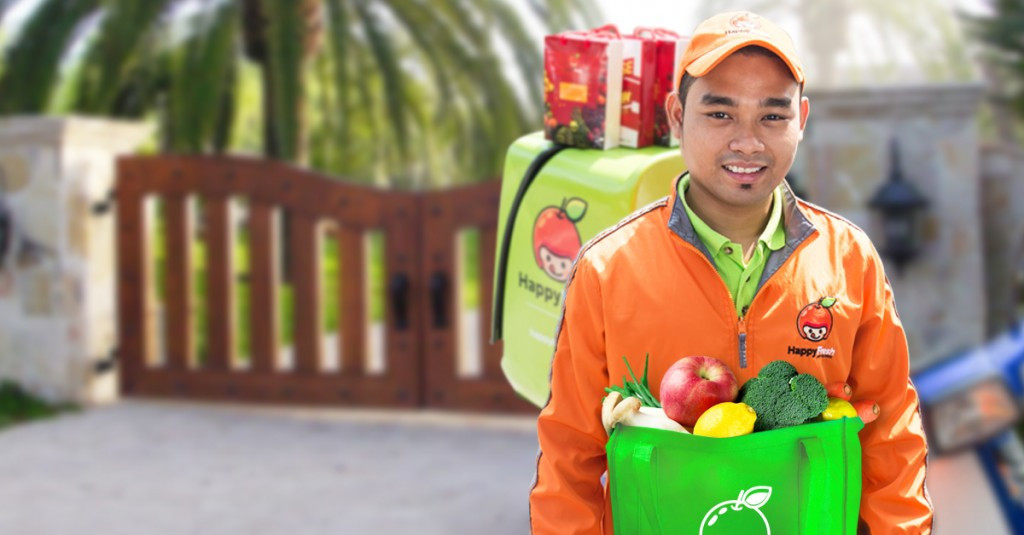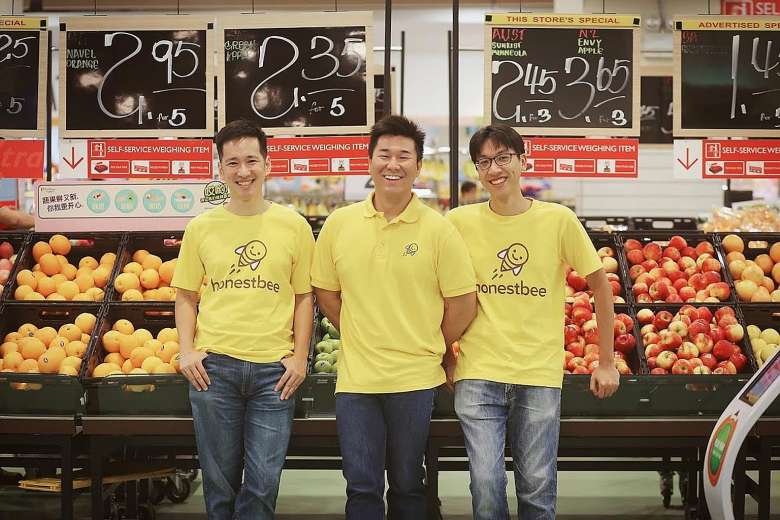Projecting the Future of Online Grocery Startup in Indonesia
It's likely to obtain growing marketshare amidst the rising awareness and retail consolidation
The online grocery allows the consumer to order groceries, such as vegetables and other ingredients, through an application. It was on-demand, the order will be delivered to their houses within a certain period, it is due to its freshness. The platform developer also has its own couriers.
In Indonesia, the penetration is still around the top-tier cities like Jabodetabek. Although, it still holds high potential. The Institute of Grocery Distribution (IGD) Asia said the online grocery value will grow at 198% from US$99 billion in 2019 to US$295 billion in 2023. Southeast Asia is projected to experience rapid growth, although in terms of value is not as big as in Japan, South Korea, or China. Indian and Indonesian market is projected as important for business for its scalability.
Online grocery platform journey in Indonesia
The online grocery concept has been started since the 2013's. There were several players entering the market then, one of which still survives is SeroyaMart. While others like Sukamart chose not to continue the business. In the following year, other players began to appear, including regional migrant, Honestbee even though only lasted 1.5 years in Indonesia.
HappyFresh, SayurBox, KeSupermarket, Hypermart, GoMart, until the latest GrabFresh now serves the community. Each has strong business support.
First, HappyFresh, has entered Indonesia in 2015, they've expanded to 11 major cities in 3 countries, including Malaysia and Thailand. They serve users in Jadetabek, Bandung, Surabaya, and Malang. Sinar Mas Digital Venture, Vertex Ventures, Grab Ventures, LINE Ventures are some of the venture capitalists who have backed HappyFresh into a centaur, valuing above US$ 100 million.
HappyFresh driver-partners will help users shop in supermarkets and stores that have become partners, some of which are Transmart, Giant, Lotte Mart, and Super Indo. In addition, HappyCorporate exists to serve the needs of grocery in offices. Significant strategic cooperation was then built with Grab, resulting in GrabFresh services. Compete directly with Gojek's GoMart, which offers similar services.

SayurBox has become an online grocery startup that has succeeded in becoming a centaur, through funding provided by Insignia Venture, Patamar Capital, East Ventures and Tokopedia. The approach is different, they are connected directly with farmers or sales partners to distribute their merchandise through the application. In addition to providing fresh produce, they have a mission to break the supply chain so as to provide better income for farmers. At the moment, SayurBox is only operating in Jabodetabek.
Tokopedia also has its own agenda with the involvement. Delivered on a separate occasion by CEO William Tanuwijaya, the corporate action was carried out in order to smooth the company's plan to realize its vision of being "Infrastructure as a Service" in the field of commerce. The expected impact of SayurBox, besides completing the product category - there is now a separate channel on the Tokopedia page - also provides an expansion of features on the demand and agtech side. For information, Tokopedia also invests in other vertical startups related to retail.
Consolidation with retail
As a transformative effort, Ranch Market and Farmers Market retailers finally entered the digital industry in 2016 by cooperating with Kresna Graha Investama. They present a grocery online platform called KeSupermarket. An online-to-offline scheme through the "Collect in Store" feature is also presented, allowing users to take items purchased online at offline stores, while still providing logistical services.
As other retailers like Hypermart do, they present digital services on websites and mobile applications to make it easy for users to get their products. The O2O scheme is also implemented to provide options, therefore, users can pick up their purchases at the store themselves. Giant, Hero, Transmart, Lotte Mart also finally took a similar approach to developing digital channels.
Although these retailers have their own applications, it does not necessarily get high interest from users. For example, if you see download statistics on Google Play, the grocery online app startup gain higher downloads. Meanwhile, what players like HappyFresh do is actually connects consumers with products in retail such as LotteMart.
| Applications (Android) | Total Downloads |
| LotteMart Indonesia | 10.000+ |
| Hypermart Online | 100.000+ |
| SayurBox | 500.000+ |
| HappyFresh | 1.000.000+ |
There are indeed many variables, one of which can be analyzed is each business' focus. Grocery online startups try to consolidate catalogs of various retailers to be easily accessed on one channel. The benefit is, users can get a more complete variant by surfing in one place. The focus is on accommodating the ordering process without having to think about the product supply chain directly so that they can also focus more on managing the logistics system.
Moreover, the development of grocery services (or in collaboration with) ride-hailing providers. They already have a strong foundation in the distribution system, taking advantage of driver-partners who are available in various locations. This is what makes Gojek confident with GoMart, in the midst of business efficiency through the reduction of features, such as GoLife services were stopped, leaving only GoClean and GoMassage.
A more open system also allows online grocery players to connect directly with product brands, such as partnerships that are now being intensified by players. This will have an impact on the supply chain, thereby making prices more affordable.
Not always have a clear path
Made a succession of HappyFresh and RedMart Singapore to Lazada become the highlight of the end of 2016, also to show the tight competition of the online grocery business in Southeast Asia. In the next years, some last but many also fell. Last year, Honestbee has a serious financial issue and shut down business in some countries, including Indonesia. Then, rumor has it with Grab and Gojek business exploration, but it didn't go as planned.

Launched in 2015, Honestbee has launched an aggressive growth strategy. Successful in their home country, Singapore, they soon expanded to seven neighboring countries including Hong Kong, Taiwan, Thailand, Indonesia, the Philippines and Japan. The business system, they employ freelancers or so-called "Bees" to help spend orders and send to users - a concept that is now increasingly familiar with Indonesian consumers.
In addition, Honestbee has briefly presented the concept of food delivery in Singapore. However, boosted growth has a direct impact on their finances. In the end of 2018 the company reportedly began to run out of capital, they began to dismiss employees and stop several business units, including R&D centers in India and Vietnam. Indeed, the loss that reaches millions of US dollars has succeeded with a large number of user acquisition, but the traction is not as good as expected.
The thing is, not every market share ready with these services. It was still in 2017 back then. Users in Indonesia were only familiar with e-commerce services, seeing many surveys that the average product purchased online was a gadget or fashion product. Unreliable logistics are a major problem for the delivery of fresh food. Furthermore, the services offered by Honestbee is not on-demand.
Pandemic support popularity
HappyFresh and SayurBox finally developed for a local touch. They see the fundamental problems above, such as logistics, become priorities to be resolved first. The service also operates in large urban areas that are subject to traffic congestion, but it still seeks fast delivery to home - users can view estimated delivery times and track current status.
HappyFresh CEO Guillem Segarra once said, instead of considering points on the map, their expansion strategy was always based on a market-driven approach. They choose not to rush and only come to markets that really need the solutions offered. Segarra claims to have benefited in the market where its services currently operate.
In 2020, the grocery online business might obtain a surge of high users. The Covid-19 pandemic made people start using the service, because there was an appeal not to travel outside the home. Sure enough, there are currently a lot of product stocks on empty platforms. The shipping queues have also piled up - they cannot be shipped the same day. The important point is that there is a growing awareness among Indonesian consumers.
However, e-commerce also began speeding the grocery category, such as Lazada's strategy after the acquisition of RedMart. Local companies have begun to show the same signs. For example, Blibli with the Blibli Mart, presenting the O2O concept of product daily necessity. The same thing was done by JD.id.
Online grocery will have a bright future, in the midst of increasingly digital habits, as well as consolidated retail and platform. This is in terms of the currently visited market, as in Jabodetabek. Beyond that, there are still many left to do to be validated because basically what startups offer in this vertical is to change the culture of the community, especially among housewives.
–Original article is in Indonesian, translated by Kristin Siagian
Sign up for our
newsletter
